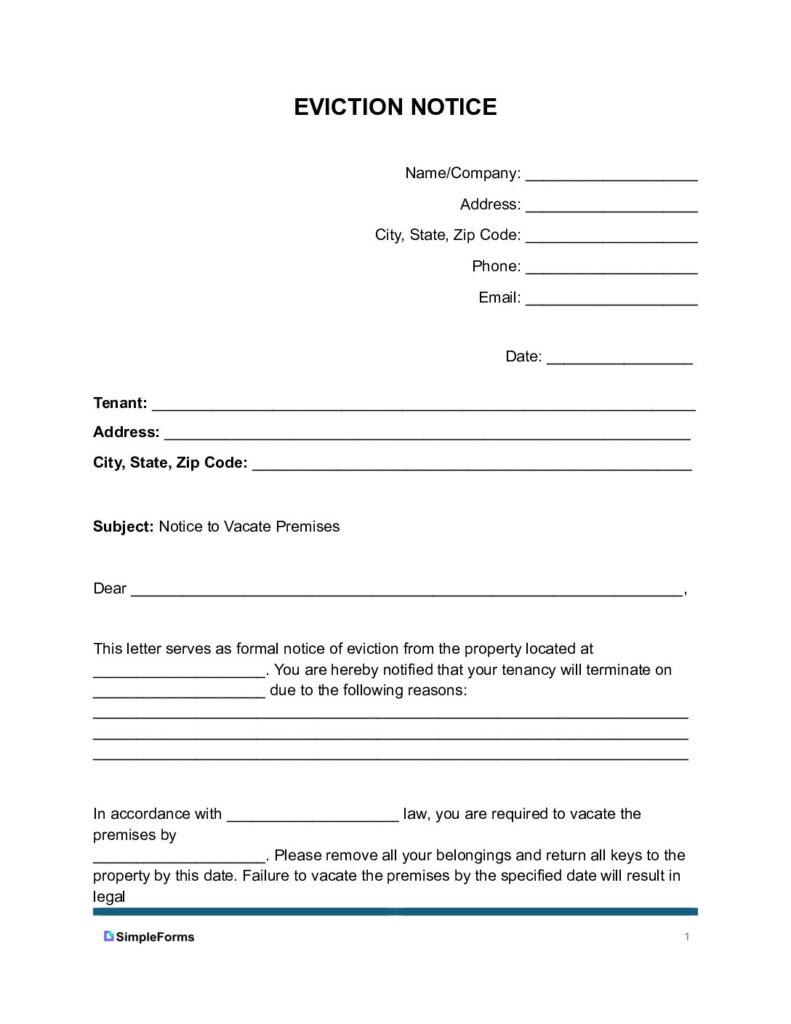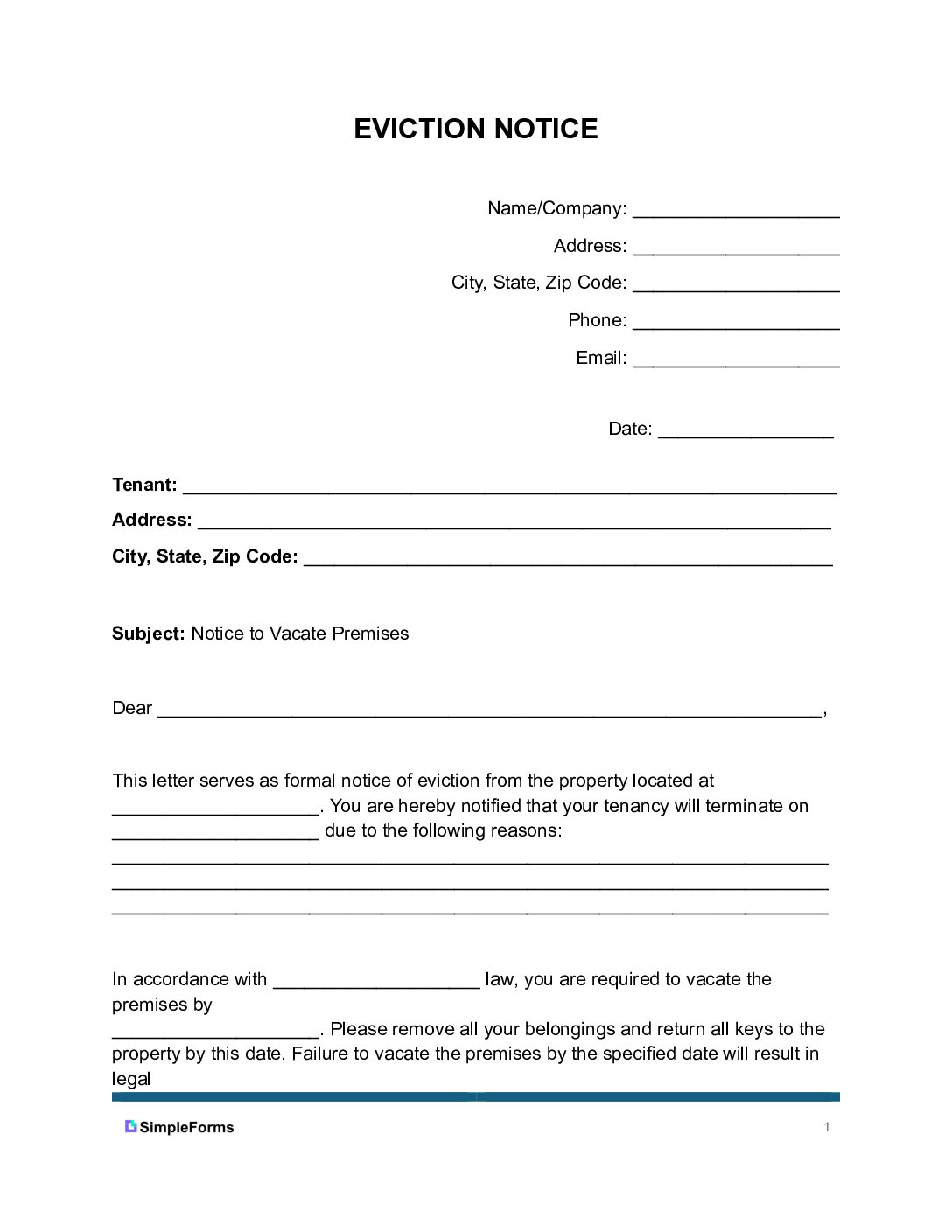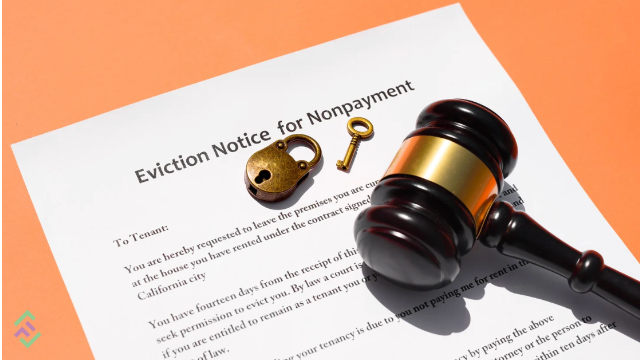This eviction notice informs tenants that the landlord will take legal action to remove them if they do not take appropriate action. Tenants may have the option to fix the issue, such as paying unpaid bills or correcting a violation of the rental lease agreement terms.
Eviction Notices for Landlords: Step-by-Step Guide
This guide includes what goes into an eviction notice, what you should keep in mind, and some best practices to follow.
What’s an Eviction Notice?
An eviction notice is a formal letter telling a tenant that they need to leave the property by a certain date. It’s one of the first steps in the eviction process.
What to Include in an Eviction Notice?
Here’s what you’ll see in a standard eviction notice:
Landlord Info
- Name/Company: Write your name or your property management company’s name.
- Contact Info: Include a phone number and email so the tenant can reach out with questions.
Date of Notice
Add the date you’re sending the notice for tracking purposes.
Tenant Mailing Information
- Tenant’s Name: Address the letter directly to the tenant.
- Property Address: Clearly state the address of the rental property involved.
Include a Subject Line
A simple subject line like “Notice to Vacate” lets the tenant know what this is about right away.
The Termination Date
State when the tenant needs to vacate and make sure this date follows local laws about how much notice to give.
Reasons for Eviction
List out why the tenant is being evicted, whether it’s due to unpaid rent or a lease violation.
Legal Consequences
Let the tenant know what could happen if they don’t leave on time—this could include court action and potential financial penalties.
Any Outstanding Payment Obligations
Remind the tenant they still owe any rent or charges, even while going through the eviction process.
Contact Info for Questions
Let the tenant reach out if they want to talk about the situation by providing your contact details can help avoid conflict.
Landlord/Owner Signatures
Sign the notice to make it official.
Things to Keep in Mind
- Follow the Law – Make sure your reasons for eviction and the notice period follow local and state laws. Every area in a state has its own rules about eviction.
- Keep Copies for Your Records – Hold onto a copy of the eviction notice and any other communications. You might need these if things escalate.
- Get Legal Help from an Attorney – It’s a good idea to consult a lawyer to make sure your eviction notice is solid and complies with local laws.
Frequently Asked Questions
Q. Do you have 30 days after eviction notice in Texas?
Answer (§ 24.005 of the Texas Property Code): Yes, the Tenant(s) must leave the rental property 30 days from when the notice was received.


